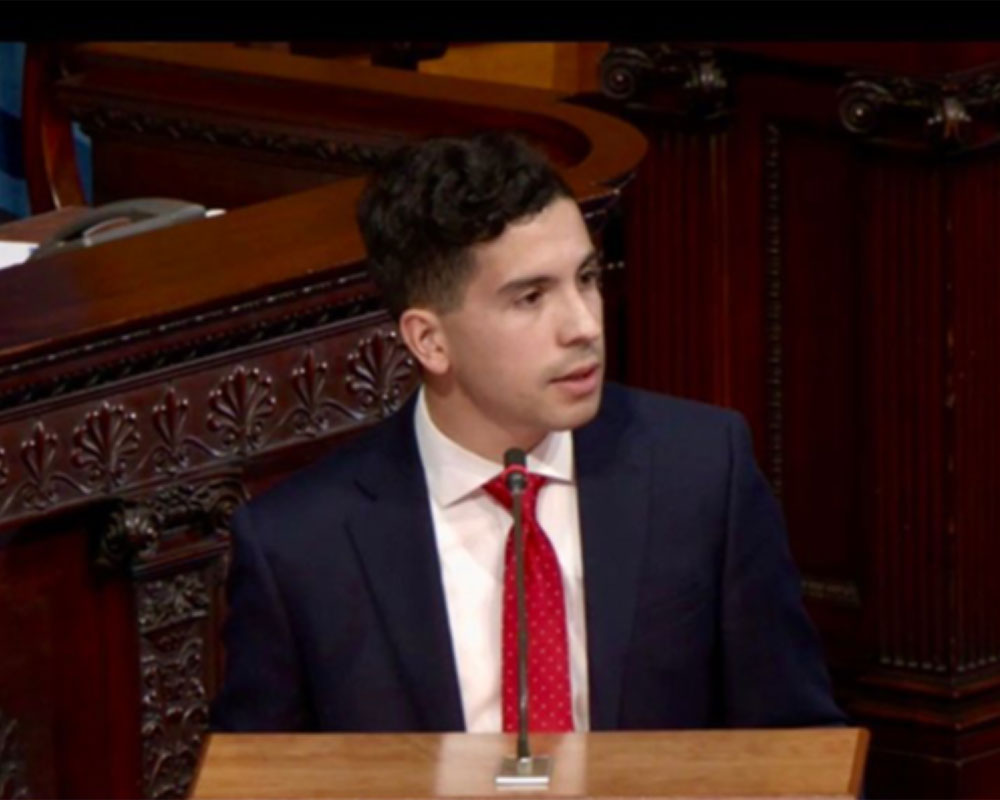More housing could be built in Haverhill and other communities by removing super-majority requirements of local boards.
Gov. Charlie Baker’s proposal to make those zoning changes easier is one step closer to passage after the Housing Committee voted to advance yesterday it alongside 20 other bills aimed at generating new housing production. His bill aims to address a shortage of housing units that is also driving rents up.
A related measure by A bill file Reps. Kevin G. Honan and Andy X. Vargas that advanced Thursday combines language found in several other bills. The bill includes local board voting-threshold changes similar to Baker’s and also calls for production of 427,000 new units by 2040, with a further requirement for multi-family housing by right in MBTA communities.
The legislation would lower the local voting threshold needed for zoning changes from a two-thirds majority to a simple majority, a difference that Baker and supporters argue would allow more projects to get approved rather than fail on a 3-2 city council vote or with only 55 percent backing.
The Housing Committee voted 16-1 in a poll that concluded Thursday afternoon to favorably report out Baker’s bill, according to a copy of the results acquired by State House News Service.
All 20 other bills, which range from a proposal to establish a housing production task force to one that would set a statewide housing production goal, also advanced with only one dissenting vote. Rep. David DeCoste, a Norwell Republican voted against each bill, while Sen. Patrick O’Connor, a Plymouth Republican, reserved his rights on some votes.
Sen. Brendan Crighton, the committee’s co-chair said he expects the bills to be a priority in 2020 to address a “housing crisis” stretching across most of the state.
“We’re producing less than half the housing we produced during the 1970s. Rent has increased more than 75 percent since 2000,” Crighton said. “Everyone agrees we’re not producing nearly the amount of housing we need to, and as a result, Massachusetts has become an unaffordable place to live. I’m seeing it in my district and seeing from all of my colleagues that they’re being affected as well.”
In a statement, Senate President Karen Spilka did not say if she would bring Baker’s bill or any of the other bills to the floor for a vote in 2020, but said the topic is high on the agenda.
Baker originally filed his legislation, referred to by supporters as the “housing choice bill,” in December 2017.
Some opponents argued the change could lead to a spike in density that alters the character of local neighborhoods, but Crighton disagreed. “It doesn’t take away any local control,” he said. “It just puts together a more common-sense approach that says a majority of folks can make a decision on the matter.”
Lawmakers did not get Baker’s bill across the finish line last session, and the administration ramped up its advocacy this year with regular events pushing it as a much-needed tool to address a suffocating housing crunch.
Seven months after the committee heard testimony — and two months after co-chair Honan said more work was needed to get stakeholders concerned about density on board — Baker’s bill advanced almost unanimously.
A spokesperson for House Speaker Robert DeLeo did not respond to a News Service inquiry about whether he plans to bring the housing bills up for full votes in the new year.

